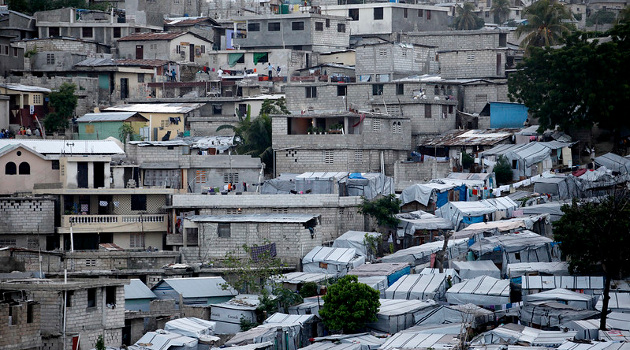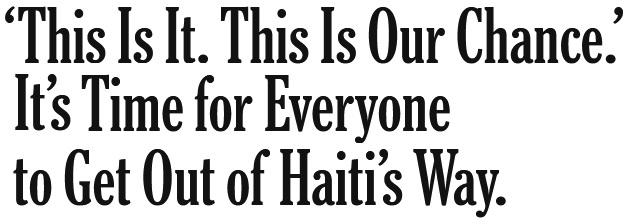There are some Caribbean jurisdictions that are very rich and successful, such as the Cayman Islands. There are others that have middle-of-the-road track records, such as Barbados.
Then there’s the basket case of Haiti.
Here’s data from the World Bank about per-capita economic output, showing how these three jurisdictions compare to both the United States and the world average.
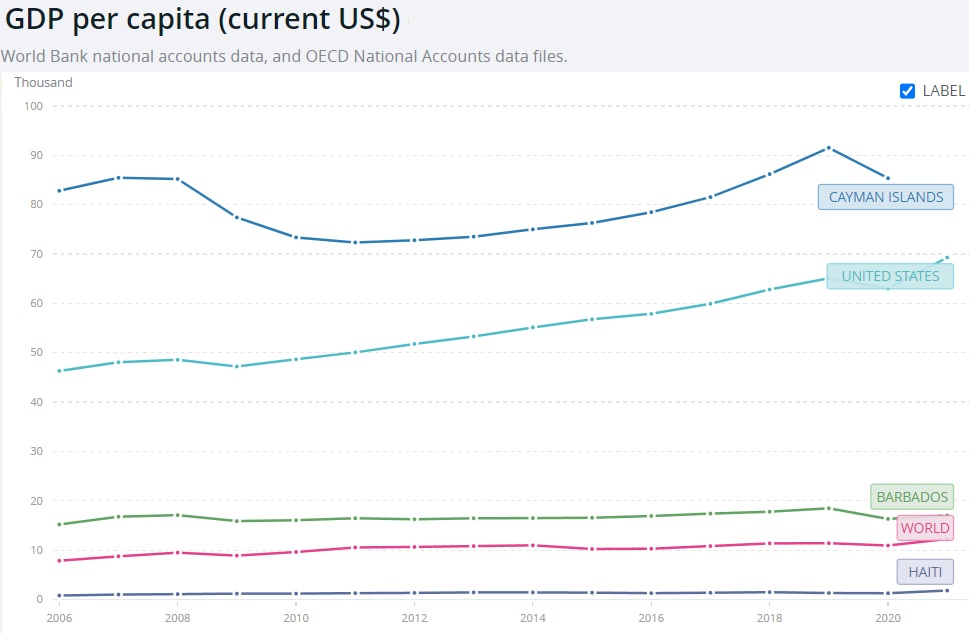
And if you want another perspective, the United Nations’ Human Development Index also shows big gaps (the Cayman Islands is a territory of the United Kingdom rather than an independent nation, so it’s not part of the UN’s dataset).
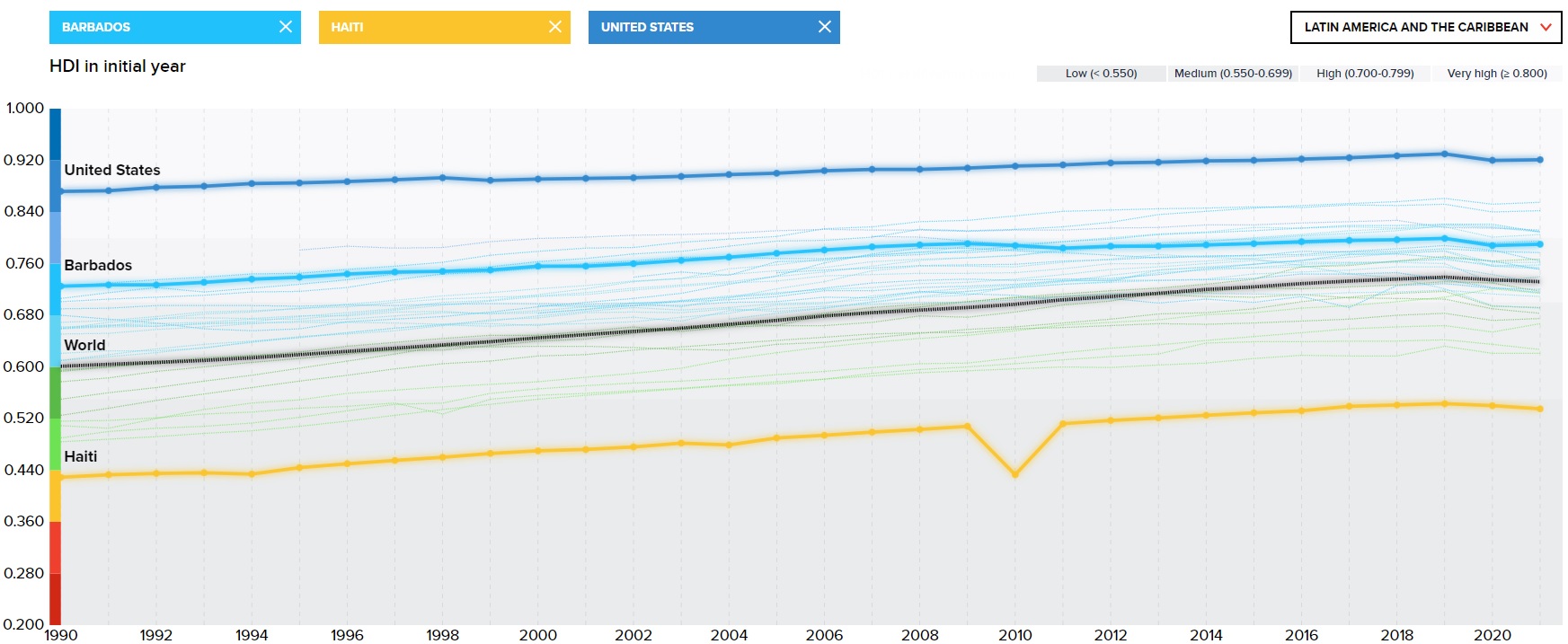
So why am I citing this data?
Because Lydia Polgreen has a column about Haiti in the New York Times that contains a lot of fascinating history about that unfortunate nation, including the reign of left-wing firebrand Jean-Bertrand Aristide earlier this century.
But I was especially interested in her analysis about the current crisis and what may happen in the future.
Haiti is in free fall. …Gangs, most of which have ties to political and business leaders, have all but shut down Haiti’s economy by cutting off the flow of fuel and food. Hunger is bearing down on many families. Cholera, which once killed around 10,000 people here, is again spreading. …For all its seeming complexity, the current upheaval turns on the same question that has driven almost every crisis on this island for the past 230 years: Who will rule Haiti? …Haiti has long had independence, but where was its true freedom? …What does the world owe Haiti today? First and foremost to leave it alone. To give Haitians the time, space and support to imagine a different future for their own country. ..Over the past dozen years, Haitian politics has grown ever more fractured as the country has been battered by a shattering earthquake and a series of storms and hurricanes. The political scene has been dominated by American-backed center-right leaders… In the absence of a modern industrial economy, the country quickly stratified. There is a mercantile class that makes most of its money importing goods and selling them to everybody else — desperately poor people surviving on subsistence wages and remittances from a thriving diaspora in the United States, Canada, France and beyond. …The first step to helping Haiti fulfill its destiny, to be the independent Black republic its revolution promised, may be for the rest of us to get out of its way.
I’m in favor of Haiti having a stronger and better democracy. That hopefully would lead to improvements in the “rule of law.”
But I fear that Haiti’s economy is mostly being held back by statist economic policy.
The Heritage Foundation’s Index of Economic Freedom ranks Haiti a lowly #150 (out of 177 nations), with failing scores in many categories.
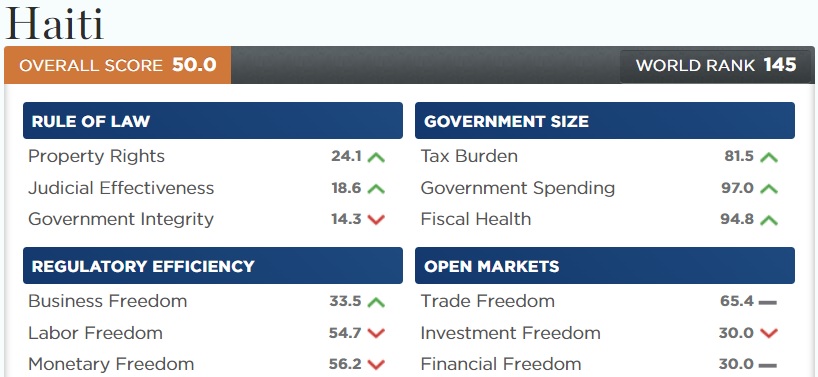
The Fraser Institute’s Economic Freedom of the World gives Haiti a somewhat better score (though still a dismal #96 out of 165).
But notice that the nation’s overall level of economic liberty today is lower than it was in the early 2000s, when Aristide was in power.
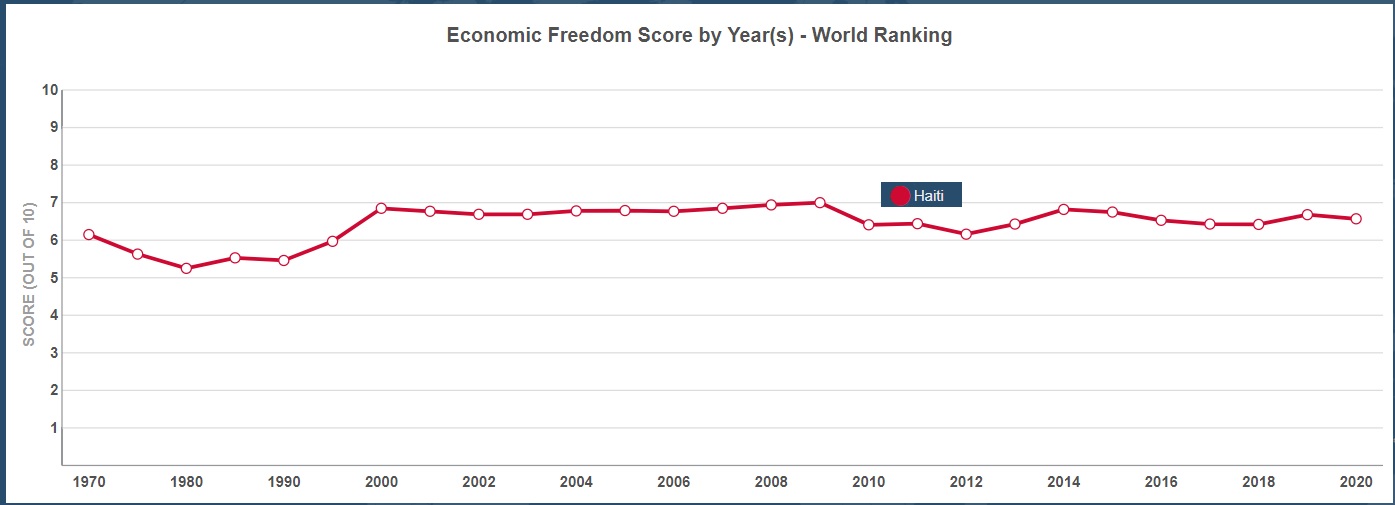
So if Haiti has been “dominated by American-backed center-right leaders” in recent years, as Ms. Polgreen writes in her column, they obviously are not center-right on economic policy.
The bottom line is that we know the recipe that makes nations economically successful. And we also know that Haiti has not been following that recipe (other than perhaps looking at what works and then choosing the opposite).
So even if the nation somehow achieves perfect democracy, don’t hold your breath expecting a big jump in living standards.
———
Image credit: World Bank Photo Collection | CC BY-NC-ND 2.0.

